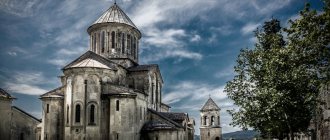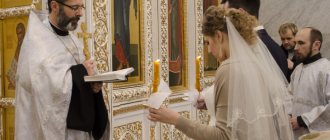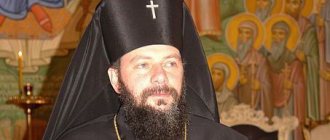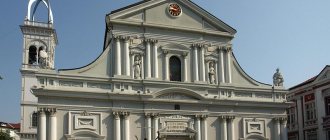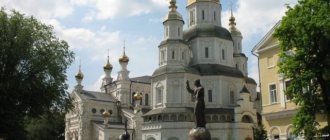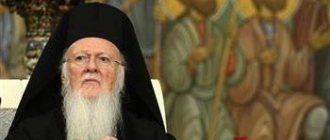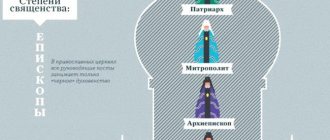Rafail Karelin is an archimandrite and clergyman of the Georgian Orthodox Church. He is deservedly considered an outstanding theologian of our time, a defender of Orthodoxy and an experienced shepherd for all those in need. He is a spiritual writer and publicist, the author of many famous works and articles.
In addition, Rev. Raphael is known for sharply criticizing church modernism. This is a direction in theology that calls on church ministers to renew their faith; to the fact that religion must adapt to new socio-historical conditions, to the changed consciousness of believers. He also opposes ecumenism. This refers to the movement for the unification of all faiths of various Christian denominations.
Archimandrite Rafail Karelin: biography
In the world, Alexander Nikolaevich Karelin was born in Tbilisi on December 29, 1931 into an intelligent family, where his father was an engineer and his mother was a teacher. Immediately after graduation, he decided to go into monastic life. This happened at his own request, since he was always interested in the truth, and could not stand any kind of deception or the illusion of deception. He himself recalls how, as a child, his mother took him to the circus, and for some reason he terribly disliked magic tricks: inverted mirrors seemed to him a distortion of life, and various kinds of buffoonery did not cause any joy, but rather, on the contrary, brought sadness. Therefore, already at a conscious age he came to monastic life.
Excerpt characterizing Rafail (Karelin)
“Laissez moi, laissez moi, tout ca m'est parfaitement egal, [Leave me, I don’t care,” answered the voice, barely holding back tears. M lle Bourienne and the little princess had to admit to themselves that the princess. Marya looked very bad in this form, worse than always; but it was already too late. She looked at them with that expression that they knew, an expression of thought and sadness. This expression did not instill fear in them towards Princess Marya. (She did not instill this feeling in anyone.) But they knew that when this expression appeared on her face, she was silent and unshakable in her decisions. – Vous changerez, n'est ce pas? [You will change, won't you?] - said Lisa, and when Princess Marya did not answer anything, Lisa left the room. Princess Marya was left alone. She did not fulfill Lisa’s wishes and not only did not change her hairstyle, but also did not look at herself in the mirror. She, powerlessly lowering her eyes and hands, sat silently and thought. She imagined a husband, a man, a strong, dominant and incomprehensibly attractive creature, suddenly transporting her into his own, completely different, happy world. Her child, the same as she had seen yesterday with the nurse’s daughter, appeared to her at her own breast. The husband stands and looks tenderly at her and the child. “But no, this is impossible: I’m too bad,” she thought. - Please come to tea. The prince will come out now,” the maid’s voice said from behind the door. She woke up and was horrified by what she was thinking. And before going down, she stood up, entered the image and, looking at the black face of the large image of the Savior illuminated by the lamp, stood in front of it with her hands folded for several minutes. There was a painful doubt in the soul of Princess Marya. Is the joy of love, earthly love for a man possible for her? In her thoughts about marriage, Princess Mary dreamed of family happiness and children, but her main, strongest and hidden dream was earthly love. The feeling was the stronger the more she tried to hide it from others and even from herself. “My God,” she said, “how can I suppress these thoughts of the devil in my heart? How can I renounce evil thoughts forever, so as to calmly fulfill Your will? And as soon as she made this question, God already answered her in her own heart: “Do not desire anything for yourself; don't search, don't worry, don't envy. The future of people and your destiny should be unknown to you; but live in such a way that you are ready for anything. If God pleases to test you in the responsibilities of marriage, be ready to do His will.” With this calming thought (but still with the hope of fulfilling her forbidden, earthly dream), Princess Marya, sighing, crossed herself and went downstairs, not thinking about her dress, or her hairstyle, or how she would enter and what she would say. What could all this mean in comparison with the predestination of God, without whose will not a single hair will fall from a human head? When Princess Marya entered the room, Prince Vasily and his son were already in the living room, talking with the little princess and m lle Bourienne. When she entered with her heavy gait, stepping on her heels, the men and m lle Bourienne rose, and the little princess, pointing to her to the men, said: Voila Marie! [Here is Marie!] Princess Marya saw everyone and saw them in detail. She saw the face of Prince Vasily, who stopped seriously for a moment at the sight of the princess and immediately smiled, and the face of the little princess, who read with curiosity on the faces of the guests the impression that Marie would make on them. She also saw M lle Bourienne with her ribbon and beautiful face and her gaze, more animated than ever, fixed on him; but she could not see him, she only saw something large, bright and beautiful, moving towards her when she entered the room. First, Prince Vasily approached her, and she kissed the bald head bending over her hand, and answered his words that she, on the contrary, remembered him very well. Then Anatole approached her. She still hasn't seen him. She only felt a gentle hand take her firmly and lightly touched her white forehead, above which her beautiful brown hair was anointed. When she looked at him, his beauty struck her. Anatop, with the thumb of his right hand behind the buttoned button of his uniform, with his chest arched forward and his back arched back, swinging one outstretched leg and slightly bowing his head, silently, cheerfully looked at the princess, apparently not thinking about her at all. Anatole was not resourceful, not quick and not eloquent in conversations, but he had the ability of calm and unchangeable confidence, precious for the world. If a person who is not self-confident is silent at the first acquaintance and shows an awareness of the indecency of this silence and a desire to find something, and it will not be good; but Anatole was silent, shaking his leg, cheerfully observing the princess’s hairstyle. It was clear that he could remain silent so calmly for a very long time. “If anyone finds this silence awkward, then talk, but I don’t want to,” his appearance seemed to say. In addition, in dealing with women, Anatole had that manner that most of all inspires curiosity, fear and even love in women - a manner of contemptuous consciousness of his superiority. It was as if he was telling them with his appearance: “I know you, I know you, but why bother with you? And you would be glad!” It may be that he did not think this when meeting women (and it is even likely that he did not, because he did not think much at all), but that was his appearance and such a manner. The princess felt this and, as if wanting to show him that she did not dare think about keeping him busy, turned to the old prince. The conversation was general and lively, thanks to the little voice and the sponge with a mustache that rose above the white teeth of the little princess. She met Prince Vasily with that method of joking, which is often used by talkatively cheerful people and which consists in the fact that some long-established jokes and funny, partly not known to everyone, funny memories are assumed between the person who is being treated like that and oneself, then as there are no such memories, just as there were none between the little princess and Prince Vasily. Prince Vasily willingly succumbed to this tone; The little princess involved Anatole, whom she hardly knew, in this memory of funny incidents that had never happened. M lle Bourienne also shared these common memories, and even Princess Marya felt with pleasure that she was drawn into this cheerful memory. “At least now we will make full use of you, dear prince,” said the little princess, in French, of course, to Prince Vasily, “it’s not like at our evenings at Annette’s, where you always run away; remember cette chere Annette? [dear Annette?] - Oh, you can’t talk about politics like Annette! – What about our tea table? - Oh yeah! - Why have you never been to Annette? – the little princess asked Anatole. “And I know, I know,” she said with a wink, “your brother Ippolit told me about your affairs.” - ABOUT! “She shook her finger at him. - Even in Paris I know your pranks! - And he, Hippolytus, didn’t tell you? - said Prince Vasily (turning to his son and grabbing the princess by the hand, as if she wanted to run away, and he barely had time to hold her), - but he didn’t tell you how he himself, Hippolyte, wasted away for the dear princess and how she le mettait a la porte? [kicked him out of the house?] – Oh! C'est la perle des femmes, princesse! [Oh! this is a pearl of women, princess!] - he turned to the princess. For her part, m lle Bourienne did not miss the opportunity, when she heard the word Paris, to also enter into a general conversation of memories. She allowed herself to ask how long ago Anatole left Paris, and how he liked this city. Anatole very willingly answered the Frenchwoman and, smiling, looking at her, talked to her about her fatherland. Having seen the pretty Bourienne, Anatole decided that here, in Bald Mountains, it would not be boring. “Very pretty! - he thought, looking at her, - this demoiselle de compagn is very pretty. [companion.] I hope she will take it with her when she marries me,” he thought, “la petite est gentille.” [little one is cute.]
Ordination as a monk
In 1954 he was ordained a monk, and in the same year he was promoted to the rank of hierodeacon and hieromonk. After that, he began to serve in the Church of St. George the Victorious in the village of Ilori near the city of Ochamchira in the Abkhaz Autonomous Soviet Socialist Republic.
It was during this period that Hierodeacon Raphael, at the request of parishioners, began to chastise those possessed by demons. These meetings with possessed people, or rather, their state of passion and wild obsession, remarkable strength and hatred of the Christian faith forced him to turn his attention to the study of demonic reality and the hostile force that threatens all of humanity.
Teenage years and early life
One day, a very rare publication for those times came into the hands of a future clergyman - the works of St. John Chrysostom. It captivated the young man with its brilliant writing style and novelty of thought. This book greatly influenced his future life. After graduating from school, the young man entered the Tbilisi Pedagogical Institute in the philological department. But subsequently changes occurred in his soul, and he decided that the time had come to serve God. Therefore, upon completion of his studies, he decided to become a monk.
Monastic tonsure
During the Soviet years in Georgia, most of the monasteries were destroyed or abandoned. Therefore, the young man decided to take monastic vows secretly. He did not do this only because Archimandrite Zinovy Mazhuga called him. It turned out that one parish needed a priest. Something happened that the young man had been striving for for many years.
In 1954, Ruslan became a monk. He was named Raphael after the famous Archangel. Soon he became a hierodeacon, and then a hieromonk. There were no educational institutions of spiritual orientation in Georgia during the Soviet years. Raphael was forced to go to the Olginsky Monastery, where he was taught church sacraments, services, prayers and much more.
Then the young priest was sent to serve in the village. Ilori, where the Church of St. George the Victorious operated. There, at the numerous requests of parishioners, he had to fight the possessed. Then the understanding came that in fact there is a reality of demons, inaccessible to us, who are a counterweight to divine forces.
Church service in Sukhumi
From 1958 to 1973 Archimandrite Rafail Karelin served in the Sukhumi-Abkhaz diocese. Here he was lucky enough to get closer to Father Seraphim.
He was famous for the fact that he sat for 12 years on an ordinary stone in the Glinskaya desert and prayed continuously all this time.
Subsequently, Father Seraphim was officially recognized as a holy man.
This righteous man became a real spiritual father for Raphael. Recalling those years, he repeatedly mentioned that his spiritual life was most eventful during his service in the Sukhumi-Abkhaz diocese. Then, due to illness, I had to leave the service and return to Tbilisi for treatment.
Sukhumi
Time passed, Rafail Karelin moved to Sukhumi and began to serve there in the Transfiguration Cemetery Church. It was during this period that the future archimandrite met his first spiritual father - Archimandrite Seraphim (Romantsov), who, possessing special spiritual experience, with attention and sensitivity to all people and evangelical love, was able to reach the most important heights in his tonsure and became a holy elder. His name was canonized in 2010. Saint Seraphim disguised his love and care for people under moderate severity, so he did not have unreasonable admirers.
Links
- [karelin-r.ru/ Archimandrite Rafail (Karelin) - all articles, books and lectures (audio-video)]
| : Incorrect or missing image | To improve this article it is desirable:
|
Teaching path
Archimandrite Rafail Karelin was also acquainted with Metropolitan Zinovy (Mazhuga), canonized in 2010. He was known for his love of the Jesus Prayer and had an amazing ability to combine active administrative activities with unceasing prayer.
In 1975, Father Rafail became a teacher of the Slavic language at the Mtskheta Theological Seminary and a temporary inspector.
In the early 80s, he often visited holy places and monasteries in Russia. And he especially fell in love with the Pskov-Pechersk monastery. At this time, his spiritual father was schema-abbot Savva, for whose canonization the Orthodox Church is already preparing. This elder was known for several cases of healing terminally ill people.
Around the same years, Father Raphael graduated from the Moscow Theological Seminary in absentia and received the blessing of Schema-Abbot Savva to write texts on a spiritual topic. Then Archimandrite Raphael Karelin becomes a teacher of the Slavic language, history of religion, asceticism and theology at the Tbilisi Theological Academy.
He spends his last years of priestly service in the Church of St. Alexander Nevsky in the city of Tbilisi. And since 1988, Archimandrite Rafail Karelin, due to deteriorating health (poor vision), no longer conducts such active activities, but also does not stop writing spiritual literature.
From answers to questions about electronic documents and globalization processes
Question:
Dear Father Raphael, bless! People who do not understand and do not see the danger in accepting the Unified Electronic Card, and behind it the chip, as a rule say the following: “What harm is there for the soul? After all, when accepting a card/chip, they do not require you to renounce Christ! What harm does this external action do to the soul?” Father! To further support their words, such people cite quotes from the works of St. Tikhon of Zadonsk. Please read: “For God does not look at the external sign and position of the body in which it is, but at the heart, humility, faith and heartfelt desire” (St. Tikhon of Zadonsk. On true Christianity. Book 2. Article 3. Chapter 5) . “Faith frees the believer from sin, death, damnation, hell, the devil and other disasters and makes him spiritually free. Spiritually, I say, for physically he can be enslaved, he can be a slave to man, he can be in captivity, in chains, in prison, bound and shackled, for there are many such among the faithful. ... But all of them are spiritually free” (St. Tikhon of Zadonsk. About true Christianity. Book 2. Article 1. Chapter 2). How to explain to these people the spiritual danger in accepting a single card and chip? Answer of Archimandrite Raphael:
Irina! Globalization in itself is a negative process, as it leads to the leveling of the human personality and to control over the private, even intimate life of a person. But this is an objective process, the same as technical civilization, which is already turning against humanity, but it is impossible to stop it. Therefore, on the issue of a single electronic card, we must avoid extremes, namely, not to praise it as an achievement and, on the other hand, not to attribute to it some kind of demonic power that seizes a person. I have not studied these issues myself, and I will say frankly that they interest me little; I believe that here we need to listen to the voice of the hierarchy. We are included in that organism called the Church. Of course, you can point to the mistakes of individual priests and hierarchs, but you can also point to the mistakes of doctors, but because of this, medicine itself cannot be denied. After all, we ourselves are more likely to make mistakes, and then the sin of conceit and disobedience will be added to the mistake. Personally, I do not see in the electronic card a renunciation of Christianity or a retreat from the Orthodox faith. I invoke God's blessing on you. God help you.
Question:
Deacon Vladimir asks: Hello, Venerable Father Raphael!
We rejoice in the Lord, who has made us worthy to live to see the Week of the Worship of the Cross. However, Post. There are many questions, but it seems that the main question for many Orthodox Christians and, even more so, Muscovites: what is the attitude towards the “innovations” associated with a certain “electronization” that is being introduced into the practice of passporting the population of the capital city of Moscow and beyond? God bless you, Father Raphael! Answer from Archimandrite Raphael:
Father Vladimir! The Lord said: “Give what is Caesar’s to Caesar, and what is God’s to God.” The issue of passportization and its forms falls within the competence of the state. It does not concern Orthodoxy and religion in general, so there is no need to “fear fear where there is no fear” and divert your attention from your inner life and fulfillment of the Gospel commandments. I ask for your prayers. God help you.
Question:
Lyudmila asks: Father Raphael, bless!
We in the family have been praying for you for a long time as a spiritually close person. I am very grateful to you for the book “The Church and the Intelligentsia.” Father, how sad it is to see your WRONG position on the issue of chipping people. It is fundamentally different from the position of such spiritual authorities as Elder Paisius the Svyatogorets and Father Kirill (Pavlov). Father Kirill said: “Today – a number, tomorrow – a card, the day after tomorrow – a stamp.” And the events unfolding before our eyes confirm the correctness of these and other spiritual men. So you answered Deacon Vladimir that this question “does not concern Orthodoxy and religion in general.” I, a sinner, think that the Lord is on the side of those who understand the danger of introducing a chip into the human body (on the forehead or right hand - as John the Theologian warned us about this and as provided for in already developed technologies). In particular, at the recent prayer stand of the Orthodox (against chipization, in Moscow), the icon of the Holy Royal Passion-Bearers streamed myrrh; a photograph of the myrrh-streaming icon is posted on the Internet. I think that those who listen to your “good” advice and receive a chip first in the UEC (universal electronic card), and then in their body, will die, and you will have to answer for your “good” advice in ordeals and at the Last Judgment. Forgive and pray for me, the great sinner Lyudmila, my mentally ill daughter Marina and my sick mother Lyubov. God bless you, including from soul-destroying delusions. Answer from Archimandrite Raphael:
Lyudmila! I have to answer questions the way I think. And I think that the seal of the Antichrist is inseparable from the conscious and public worship of him as an earthly god. The Lord wants a person to voluntarily devote his heart to Him, and the Antichrist wants a person to voluntarily renounce faith, since only in this case will the soul belong to him. Therefore, the seal will be accepted not by force, not by deception, but consciously, since the Antichrist needs precisely the consent of the human will. It is also dangerous to decipher biblical symbolism on your own, since the same symbols can have different meanings depending on the context. I am in the Church and believe that, in the words of the Savior, grace will never leave the Church: “The gates of hell will not prevail against it.” Therefore, I believe that it is safer to listen to the general voice of the hierarchy than to subjectively resolve these issues. Thank you for your prayers. I invoke God's blessing on you. God help you and your family.
Archimandrite Rafail Karelin: website
A huge list of books, various kinds of articles and conversations, as well as audio and video material can be viewed on the special website of Archimandrite Raphael. And we must give him credit as an author, since everything he writes about is read with great interest. It opens your eyes to many things. This could be the psychology of family life, raising the younger generation, or something else. He can always give a laconic answer to every question, which may seem too philosophical or unrealistic to some. However, this is only at first glance, since Archimandrite Karelin, first of all, makes a person think and live a spiritual life, which means he sows the very seed that will certainly grow with the right approach of people to any problem in life.
About the ascetics of recent times
On July 27, 1980, 35 years ago, the famous confessor and ascetic schema-abbot Savva (Ostapenko) reposed in the Lord. Father Savva was the confessor of Archimandrite Rafail (Karelin), and Father Rafail considered his meeting with him “the greatest event in his life.”
The Lord vouchsafed Father Raphael to know other elders and people of high spiritual life, both in Georgia and in Russia - he spoke about them in his book “On the Path from Time to Eternity.” We turned to Father Raphael with a question: which of them can be set as a special example for modern Christians?
The Psalter says: “The Queen appears at Your right hand, in gilded (multi-colored) vestments, adorned.” According to the patristic interpretation, the Queen is the Church, multi-colored robes are various types of service, embellished - radiant with the beauty of the Holy Spirit. Grace is one, but manifests itself in various actions and gifts. The ascetics of our time, about whom I wrote in my memoirs, were united in the main thing: unshakable devotion to Orthodoxy, dedication to people, sacrifice and a constant desire to acquire and keep Divine grace in the heart as the greatest treasure. But each of them had their own special gifts, their own individuality, so it is difficult for me to compare them with each other and talk about which of them I consider the best example for Christians of our time.
Metropolitan Zinovy (Mazhuga)
Metropolitan Zinovy (Mazhuga) had no theological or secular education, but was distinguished by deep wisdom, which he acquired through monastic obedience and hesychia. Bishops from other Local Churches turned to him for spiritual help, prayer support and advice as their mentor and elder. We can say that his spiritual height and holiness were obvious, like the light of a lit lamp. From his youth he was an ascetic monk and remained the same until his death, without changing after his episcopal consecration his long prayer rule, which he performed mainly at night, and then was almost always present at the Liturgies, which were served daily in the Church of St. Alexander Nevsky. Vladyka Zinovy suffered all his life from non-healing wounds on his legs, which he received in his youth in exile and prisons - in these death camps, and spent many nights without sleep from pain, but hid it from people.
Vladyka Zinovy secretly supported many people financially, and without asking, as if in spirit recognizing their needs
The Bishop seemed to be a born bishop. His appearance inspired respect even among non-believers, but with this spiritual greatness was combined deep humility and simplicity. He always performed divine services solemnly and splendidly. His gaze was extraordinary. His eyes, pure as crystal, reflected the clarity of his soul, and at the same time his gaze was penetrating, sometimes stern, and more often compassionate and sad, as if he saw the depth of the human heart. Vladyka Zinovy was distinguished by his mercy: he secretly gave alms to many, which became known especially after his death. People said that he supported them financially in the most difficult circumstances, without asking, as if in spirit learning about their needs. He did not abandon with his mercy not only the living, but also the dead. During the Liturgy, he spent a long time taking out particles for the dead from the prosphora, as if he wanted to feed hundreds of hungry people who had gathered at the threshold of the church. He did not read the memorial, because he knew the names by heart - he kept them in his memory, or rather in his heart. At these moments it seemed to me that the Metropolitan’s prayer was extracting the souls of the departed from hell and returning them from death to life.
The life of Vladyka Zinovy is a reminder to us that the main strength is the grace of God, and not knowledge and talents
People like Metropolitan Zinovy were a gift from God for our time, like the righteous John of Kronstadt for that era when the ghosts of future disasters hung over the earth and the Russian Empire began to be shaken by the storms of revolution. Vladika Zinovy was sent to our contemporaries as a reminder that in Christianity the main force is the grace of God: where it is absent, all knowledge and talents are powerless, and where it is, faith becomes life-giving and victorious.
Schema-abbot Savva (Ostapenko)
I would like to mention the great ascetic schema-hegumen Savva (Ostapenko). His life was a long prayer, his heart was united, as if fused with the name of God. He taught the Jesus Prayer - this fiery work - to everyone who came to him for advice and confession. Joy and sorrow coexisted in him in an amazing way. He was always joyful, as if glowing with inner spiritual fire and warming others with it. At the same time, he deeply grieved for human sins, for the fact that people forgot about the main thing - eternal life, the salvation of the soul in God - and exchanged grace for earthly dust. His prayer for the whole world, especially for his spiritual children, was similar to personal repentance, as if it was not they who committed the fall, but he himself.
Father Savva taught the Jesus Prayer to everyone who came to him for advice and confession
Many recalled that when they approached the door of Father Savva’s cell, they were overcome by some kind of mystical awe, an expectation of the mysterious and extraordinary, and at the same time the fear that they were not prepared for this meeting. Some admitted that the dark force at that time silently screamed: “Run from here wherever you want, do whatever you want, just stay away from this place.”
When Father Savva served, people felt not only spiritually, but also physically the effect of grace
When Father Savva served, people felt not only spiritually, but also physically the effect of grace. In communication with Father Savva, a person was overcome by a feeling of deep peace and silence, all problems and doubts disappeared, peace settled in the heart, as if his requests had already been fulfilled. During the service, it seemed that behind each prayerful exclamation of Father Sava, the guardian angel of the altar silently said: “Amen.”
Once I saw Vladyka Zinovy and Schema-Abbot Savva talking in the altar chapel of the Alexander Nevsky Church. Light reflections of extraordinary whiteness flashed and slid on their faces, as if a ray from Tabor, passing through space and centuries, illuminated them with its beauty.
In our time of pride and vanity, the meekness of Father Parthenius evokes particular surprise - and admiration
Archimandrite Parthenius (Aptsiauri)
I remember with love Archimandrite Parthenius, who from childhood chose the monastic path, went through the stages of monastic obedience and desert life, gained experience in the fight against demonic forces and passions, was a confessor of the faith during the most difficult time of the bloody persecution of the Church, when believers were subjected to persecution and genocide unheard of in history. I would like to note his meekness in dealing with people. He treated his spiritual children with the same humility with which spiritual children should treat their mentor. In our time of pride and vanity, his meekness evokes particular surprise and, I would say, admiration. His life was a silent lesson for the people around him, and many, not immediately, but years after his death, realized these lessons and understood the greatness of meekness and humility.
Archimandrite Parthenius emanated the fragrance of silence, as if he carried in his soul the silence of the desert in which he had spent many years. He endured injustices and insults with meekness, silently accepted blows even from close people, through whom the demon wanted to take him out of his prayerful state, arouse anger and indignation, and destroy what he had acquired through many years of labor. He seemed to me like a lamb that was surrounded by a pack of wolves, but could not touch him. Humility is always victorious: while outwardly yielding, it wins the spiritual battle.
Venerable Gabriel (Urgebadze)
Father Gabriel fearlessly spoke the truth - what the world is so afraid of and hates
The feat of Blessed Gabriel (Urgebadze) was similar to the feats of the ancient holy fools, who exposed the sins of kings and the injustice of judges. He fearlessly spoke the truth - what the world, which seeks pleasure in passions and sins, is so afraid of and hates. He could denounce the highest-ranking satrap to the face, as if grabbing a lion by the mane, without thinking that he could make him his enemy.
In our era, called modern times, man is complex with the customs and laws of this godless world. Duality is becoming a characteristic feature of modern people and - worst of all - a large part of Christians. Lies began to be perceived as wisdom, indifference to evil and condescension to depravity - as philanthropy, constant acting, hiding thoughts under feigned words - as ethics and a culture of communication. The new fashion of our time is a cult of ugliness and shamelessness, in which even people who are not at all stupid are included - for fear that if they protest, they will appear in the eyes of the world as obscurantists, fanatics and ignoramuses, lagging behind their age, as if they were late for a fast train progress. Selfishness and pragmatism become the philosophy of life; it seems that they permeate the entire atmosphere of the earth that humanity breathes. Masks surround a person everywhere - from birth to death. His life path passes through an “art gallery” of sins and vices, the images and seeds of which he carries in his heart.
Archimandrite Gabriel, being in the world, seemed free from the world. He rejected his dominion
Archimandrite Gabriel, being in the world, seemed free from the world. He rejected his dominion, like tearing apart a sticky web, accepted the feat of foolishness, like initiation into spiritual knighthood, and the world retreated from him. It must be said that he exposed the vices of people only to their faces, often in a harsh form, striking with words like blows of a blade, threatening with the curse of God those who did not want to correct themselves. However, behind his back, he did not condemn anyone except himself; he attributed to himself sins that he had not actually committed, and vices that he did not have.
Those who confessed to Father Gabriel recalled that it was easy to reveal sin and even the most shameful falls to him: the heart itself was revealed to him. People left him with relief and joy, as if a heavy burden weighing on their shoulders had been laid at his feet. The people intuitively felt the spiritual strength and boldness towards God of this ascetic. Immediately after his death, even before canonization, a pilgrimage to his grave began.
Reverend Confessor Seraphim (Romantsev)
I have great respect for the confessor of the Glinsk Hermitage, Father Seraphim (Romantsev). This elder combined severity and mercy, spiritual gentleness and spiritual firmness; he could console the mourner with a few words, raise the fallen and, as it were, breathe new strength into him, humble the proud, point out the hidden pits that lie on a person’s spiritual path, and explain in detail how to discover and bypass them. It was noted that disobedience to Father Seraphim on the part of spiritual children turned into misfortunes and moral failures for them. Communication with an ascetic is not only joy and consolation, but responsibility: it is similar to communication with fire, which shines and warms, but if handled carelessly and carelessly can scorch and burn.
In our time, I do not see ascetics like those I wrote about. This doesn't mean they don't exist. They probably exist and continue the feat of their fathers, but in secret. I just don’t see them, and maybe I’m not looking for them. The elders I wrote about have ended their earthly life, but remain with us spiritually. They are an example for contemporaries, but for me, first of all, they are a denunciation of my careless life: I had access to the treasury, but did not take anything from there and remained a beggar.
Archimandrite Raphael (Karelin)
https://www.pravoslavie.ru/put/80880.htm
Disagreements with Osipov
Many begin to look for some differences in the views and teachings on various spiritual topics of such theologians as Archimandrite Raphael and A.I. Osipov. On some forums, whole discussions took place over which of them was right. But there is no need to delve deeply into this, because each of these spiritual writers will be right in their own way. And there is nothing reprehensible in this if someone openly expresses their opinion.
Archimandrite Rafail Karelin spoke out about Osipov, in particular, because of the article “The Eucharist and the Priesthood.” He didn't like some of the statements there. But if you provide a field for dispute between these two titans of theological literature, then they will never argue with each other, since they also do not have complete knowledge about the spiritual world, and therefore they too may be mistaken in something.
Literary activity
Being a spiritual publicist, Fr. Raphael published many books criticizing church modernism, which is loyal to various movements of religion. He is completely intolerant of ecumenism in the Church, which allows the unification of all Christian denominations, including Protestants, Catholics, Uniates and others.
Archimandrite Karelin, whose books do not leave anyone indifferent, tries to convey to a wide audience answers about the purpose of the church, the path of the soul and spirit, the meaning of God and the meaning of Christ’s sacrifice. Based on broad erudition, excellent command of literary style, and having spiritual experience, the priest tries to help humanity find the answer to the eternal question about the meaning of life, sin and faith.
His literary work can be divided into areas.
- In his moral and ascetic works, the Monk Raphael delves deeply into the problems of the spiritual world, explaining to the general reader the structure and mutual connections in it. The works of a priest of this direction say a lot about the fact that a person should be content with what he has, be able to limit himself and know moderation in everything.
- The message “The Church and the Intelligentsia” addresses the issue of the relationship between the church and the intelligentsia, because both of these structures are called upon to bring truth, morality and light to the world.
- In the collection of questions and answers “In Search of Truth,” the author examines the topic of the meaning of life, enriching the spiritual life of those who read his works. A worthy and righteous life, according to the priest, is possible only after death to sin. Passions have enslaved the bulk of people who do not understand that a short time on earth is not reserved for pleasure and joy, but for finding the path to eternal life, which gives real happiness.
- In the book “On the Language of the Orthodox Icon,” the author treats with trepidation the holy images painted by holy icon painters, but sharply criticizes paintings on a religious theme by Vrubel and Dali.
- Separately, we should highlight the collections of messages of Archimandrite Raphael, in which the priest arranged answers to questions of concern to parishioners by topic.
Rafail Karelin. Christianity and modernism
Based on an analysis of his own mistakes, he gives advice to people seeking God in the following collections:
- “On the stone of faith. Questions and answers";
- “But no one will deceive you. Questions and answers";
- “The sea of life. Answers to readers' questions";
- “This mystery is great. Questions and answers about family life."
In his collections, the monk raises problematic issues of the church, pseudoculture, and modern modernism in Orthodoxy: “The Mystery of Salvation. Conversations about spiritual life”, “Orthodoxy and the temptations of this world”, “On the eternal and transitory”, “On the way from time to eternity. Memories".
The sermons of Archimandrite Raphael deserve special attention. In an original and unusual form, during services the priest teaches, admonishes and consoles those people who are looking for the truth of life.
In 1999, a collection of sermons, “The Way of a Christian,” was published, describing the inner side of church life. In his revelations, the priest shares advice on how to get closer to the Lord, and what can alienate Christians from Him, how to overcome passions, and what kind of fight to wage against demons.
